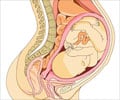The British Pregnancy Advisory Service (BPAS) has announced that nearly a third of the 32,000 terminations by women in the first nine weeks of pregnancy had involved the abortion pill, also known as EMA early medical abortion.
The latest figures reveal that the demand for the abortion pill in Britain has reached an all time high with 10,000 pregnant women undergoing the procedure last year. BPAS said the number of women, which it treated with EMA, rose from 56 per cent to 65 per cent of its caseload last year.BPAS has explained that the use of the drug, which can legally be prescribed only within nine weeks of conception, has increased since BPAS began offering the abortion pill in 2003. The figures showed that in the year 203, 3,500 women went to the organisation for the treatment. The following year 2004 the figure rose to 5,000 and that number doubled last year.
Ann Furedi, the chief executive of BPAS, explained that the women's demand for the early medical abortion service is at an all time high. She said that they are glad that it is now recognised that the best option for women needing abortion is earlier access. She explained that with the EMA, it is the woman having an abortion rather than a doctor performing it for them. This she explained was more suitable for the women when compared to a surgical abortion that would include the use of anaesthesia too. She attributed the trend as a success for Labour parties sexual health strategy.
The abortion pill works on the principle of blocking the pregnancy hormones and making the uterus contract. It is taken in two stages. The first oral dose of the drug called mifepristone has to be taken in a clinic. This blocks the pregnancy hormones. Two days later, the woman should return for a second drug, which triggers the miscarriage. Patients are sent away after the second dose so the miscarriage takes place at home.
People who support this treatment feel that as the woman has the miscarriage at home it could give her a greater control in going through a very personal and emotional process. But at the same time people who are against this feel that the abortion pill can pose a very serious health risk such as haemorrhages, when the fetus is expelled. They also state that there could be a lot of psychological damage to the woman who at such a vulnerable time might be al alone.
Michaela Aston of the anti-abortion group ‘Life’ was of the opinion that the treatment involved "a powerful and dangerous cocktail of drugs". She said that America's Food and Drug Administration was considering a ban on the drug because of safety concerns.
Advertisement











